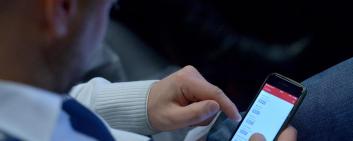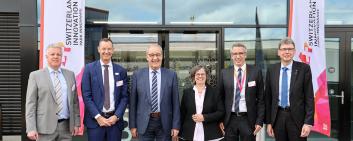The Lucerne University of Applied Sciences and Arts (HSLU) is part of the PERCEIVE project, which is being funded by the European Union (EU) to the tune of 3.8 million euros. The project seeks to preserve European objets d’art in their original form and make them accessible by, for example, offering virtual experiences, among other aspects. The team comprises members from eight countries and eleven institutions and has been tasked with investigating the way in which works of art change over the long term as a result of harmful external factors including light and humidity. Moreover, there is an emphasis on how these sculptures, paintings, textiles and historical photos, for example, can be presented in their original state.
The Immersive Realities Research Lab at HSLU, which specializes in research into virtual and augmented reality, deploys Artificial Intelligence (AI) to process and structure large volumes of data, with the help of which the original condition of a work of art can be reconstructed, further details of which can be found in a press release. The AI is also able to predict any future changes that the work of art may potentially undergo.
With this data, the HSLU lab creates interactive apps allowing users to digitally experience famous objets d’art in their original form - inside and outside of museums and for the widest possible audience. In addition, the research group focuses on computer-based works of art and is looking into ways of preserving them over the long term and integrating them into public exhibitions.
The HSLU team led by project manager Arthur Clay has also been tasked with developing a concept for a mobile post-Covid exhibition space. According to the information in the press release, the idea is for this to be set up flexibly as a pop-up in European cities and display works of art from all eras. “Of course, we are only at the very beginning of the three-year project - things are just beginning to come together”, Clay explains, before adding: “But as a HSLU team we are proud to be involved in this important initiative and to contribute our expertise”.







